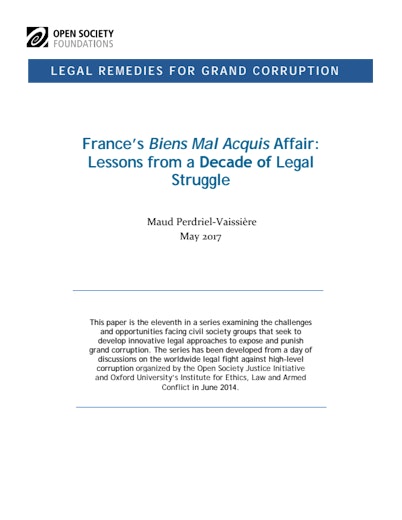France’s Biens Mal Acquis Affair: Lessons from a Decade of Legal Struggle
On June 19, 2017, the trial is scheduled to open in Paris of Teodorin Obiang, vice president of the small, oil-rich state of Equatorial Guinea, and son of the country's authoritarian ruler, President Obiang Nguema Mbasogo, who has been in power since 1979.
Teodorin is facing charges of diverting corruptly acquired funds from his country's oil revenues into investments on French territory that included a €110 million mansion on Avenue Foch in the heart of Paris, a fleet of luxury sports cars, and a 76-meter luxury yacht, valued at around €100 million. The charges carry a prison sentence of up to 10 years, and fines of millions of euros.
Yet the initial criminal complaint was brought not by French criminal prosecutors, but by nongovernmental organizations devoted to fighting corruption, including the French lawyers group Association Sherpa, which works on a range of global economic justice issues, and Transparency International France, which focuses on combating corruption.
In this paper, Maud Perdriel-Vaissière, a former executive director of Association Sherpa, reviews the case and its lessons for civil society groups that seek to use the law to confront large-scale, resource-based corruption.
This paper is part of a series examining the challenges and opportunities facing civil society groups that seek to develop innovative legal approaches to expose and punish grand corruption. The series has been developed from a day of discussions on the worldwide legal fight against high-level corruption organized by the Open Society Justice Initiative and Oxford University’s Institute for Ethics, Law and Armed Conflict in June 2014.
Topics
- Climate Justice
- Digital Rights and Fair Elections
- Discrimination and Racial Justice
- International Crimes
